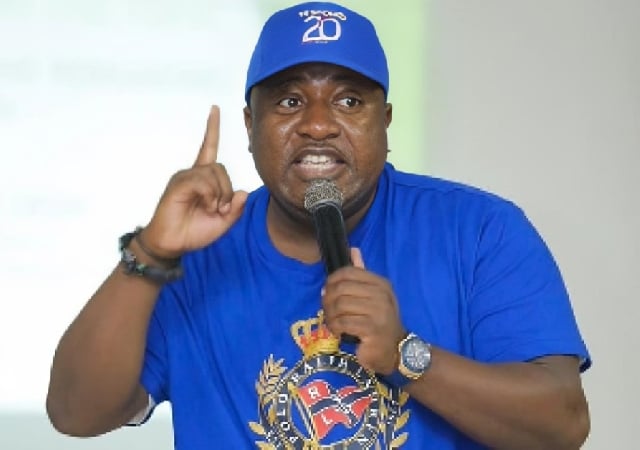The political landscape in Ghana has been ignited by a fiery debate surrounding the acceptance of West African deportees from the United States. Henry Nana Boakye, the National Organiser of the ruling New Patriotic Party (NPP), has launched a blistering attack on President John Dramani Mahama, accusing him of recklessness and a blatant disregard for Ghana’s Constitution. The crux of the controversy lies in the government’s agreement to receive these deportees, a move that Nana Boakye vehemently argues was undertaken without the necessary parliamentary approval, thereby violating the supreme law of the land. This latest clash echoes a previous constitutional dispute, casting a shadow over the government’s handling of international agreements.
The controversy erupted following the arrival of 14 deportees from the US earlier this month. Foreign Affairs Minister Samuel Okudzeto Ablakwa attempted to quell the rising storm by explaining that the arrangement with Washington was grounded in a Memorandum of Understanding (MoU), which, in his view, did not necessitate parliamentary ratification. This explanation, however, failed to satisfy critics, particularly members of the Minority in Parliament, who accused the government of sidestepping the legislature in a matter of significant national importance. Their concerns center on the potential implications of such agreements on national sovereignty and security, arguing that parliamentary scrutiny is essential to ensure the protection of Ghana’s interests.
Nana Boakye, speaking on Eyewitness News, categorically rejected Minister Ablakwa’s justification, branding the President’s action as both “unconstitutional and illegal.” He invoked the precedent of the “Gitmo 2” saga of 2016, a case that bore striking similarities to the current situation. In that instance, the Supreme Court ruled against the then-Mahama administration for accepting two detainees from Guantanamo Bay without parliamentary consent, a decision that established a clear legal framework for such arrangements under Article 75 of the Constitution. Nana Boakye, one of the plaintiffs in the “Gitmo 2” case, expressed astonishment that President Mahama, having been rebuked by the highest court of the land, would seemingly repeat the same constitutional transgression.
The “Gitmo 2” case serves as a crucial backdrop to the current controversy. In 2016, Nana Boakye, along with Margaret Banful and their lawyer Nana Agyei Baffour, challenged the Mahama administration’s decision to resettle the two Guantanamo Bay detainees in Ghana. The Supreme Court, in a landmark ruling, declared the government’s action unconstitutional, emphasizing the mandatory requirement of parliamentary approval under Article 75 for international agreements that have implications for Ghana’s obligations. This ruling underscored the principle of parliamentary oversight in matters of international agreements, particularly those involving the resettlement of foreign nationals.
Nana Boakye’s vehement criticism of President Mahama highlights the deep-seated concerns surrounding the government’s handling of this sensitive issue. He argues that the acceptance of deportees without parliamentary approval not only constitutes a breach of the Constitution but also sets a dangerous precedent for future international agreements. He further contends that the government’s actions demonstrate a disregard for the rule of law and undermine the authority of Parliament. This strong stance reflects a broader sentiment among critics who believe that the government should prioritize transparency and accountability in its dealings with foreign governments.
The controversy surrounding the acceptance of West African deportees has sparked a renewed debate about the balance of power between the executive and legislative branches of government. Nana Boakye’s decision to pursue legal action signifies a determination to uphold the principles of constitutionalism and ensure that the government adheres to the established legal framework. The outcome of this legal challenge will have significant implications for future international agreements and could further shape the ongoing discourse on Ghana’s immigration policies. As the nation grapples with this complex issue, the central question remains: Can the government navigate the delicate balance between national sovereignty and its international obligations while upholding the tenets of its Constitution?














